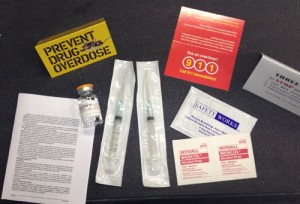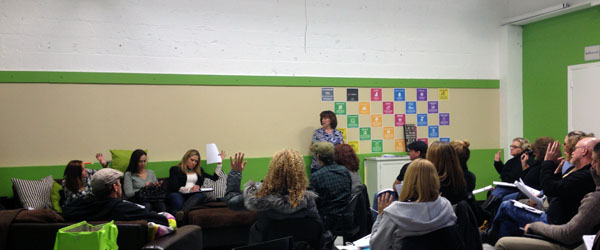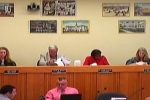Anti-overdose drug kits dispensed at training session
'This is the greatest thing people can do, is to get the word out'
Kits that contained doses of the life-saving drug Naloxone were given away, gratis, at a training session in Asbury Park Wednesday night to about 20 area residents.
Naloxone is a less expensive version of the anti-opioid drug Narcan. Both reverse the effects of opiates when administered to someone experiencing an overdose.
The training session, held at Asbury Park’s LGBT youth drop-in center, was hosted by the South Jersey AIDS Alliance as part of a continued effort to combat New Jersey’s heroin epidemic.
“The concept is to get Naloxone kits [shown at right] in the hands of the general public,” South Jersey AIDS Alliance Nurse Babette Richter told the group. “So that if people know you have it they can come to you.”
The AIDS Alliance has trained over 130 people since November of last year in the Garden State. Since November, Richter has heard back from two individuals that successfully used their free Naloxone kits to prevent an overdose.
“Our goal is to get it into the hands of people using the drug so that they can save their friends,” said Georgette Watson, chief operations officer for the Alliance.
After watching a short video that explained the characteristics of an overdose, how Naloxone works and how to administer it, Richter further explained the body’s reaction to an overdose and dispelled some common misconceptions.
Most times, it takes anywhere from 30 minutes to a few hours for an overdose to occur after a person has introduced the opiate into their system, it’s not something that happens instantly like in the movies, she said.
“Over time, the musculature relaxes as receptors are blocked and the respiratory system fails — that is the definition of an overdose,” she said. “It doesn’t happen right away. Once you have realized it is an overdose is the time to dial 911.”
Signs to look for include blue lips and fingernails, and non-response to physical or auditory stimuli, she said.
One woman who attended the event, who would only speak on the condition of anonymity, said she lost her 24-year-old son to a heroin overdose and has a 25-year-old son who still struggles with the addiction every day.
“This is the greatest thing people can do, is to get the word out and to address the stigma and to treat this as a disease,” she said. “Everybody should have [a Naloxone kit], it’s a great program. The prevalence [of heroin abuse] is so high.”
Asbury Park resident Judy Decrosta, 39, showed up because she works in the medical field.
“I like to be in the loop,” she said. “Any training is good training.”
In her job as a medical assistant, she comes in contact with people who take opiates and worries about them, not all of which are heroin abusers. People with dementia who take opiates for pain may fall victim to an overdose if they forget they have already taken their medication, she said.
“To me, they are a part of my family and I wouldn’t want anyone to lose them,” said Decrosta.
Asbury Park resident Randy Thompson helped organize the event. He has been lobbying city officials recently to have the kits put into the hands of first responders in Asbury Park, but has been met with resistance due to a glitch in the New Jersey Overdose Prevention Act.
By law, EMTs are not allowed to administer medication, Watson said.
Paramedics, who are allowed, may not be present on every ambulance call, Richter said.
Even though the law states anyone can administer Naloxone without fear of legal recourse, Asbury Park officials have decided to wait until the state Attorney General’s Office issues guidelines that address the technicality.
“That is why it is so important for us to be first responders,” Richter said.
————————————————————
Follow the Asbury Park Sun on Facebook and Twitter.







